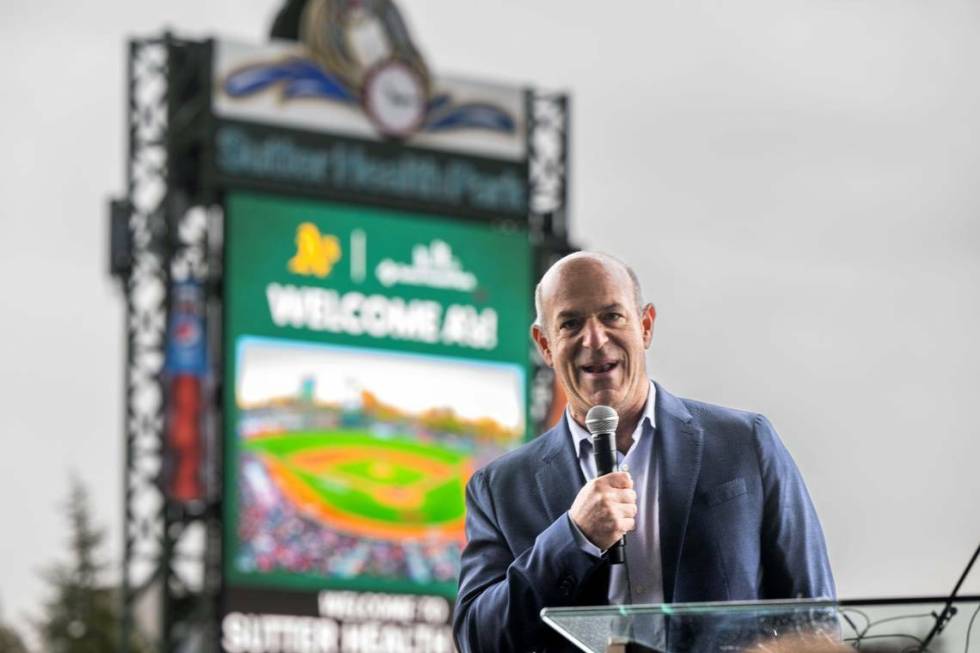Stadium authority confident A’s, Fisher can pay for LV ballpark after financial review

Las Vegas Stadium Authority staff say their review of Athletics owner John Fisher’s family finances left them confident he can finance the team’s portion of their planned $1.5 billion Strip ballpark.
Last month, Stadium Authority Chairman Steve Hill and Ed Finger, LVCVA chief financial officer, who serves as staff for the stadium authority, were allowed to examine a balance sheet of the Fisher family. The two conducted what amounted to something between “an audit and a look” at the Fisher family’s finances, Hill said Tuesday, during a Las Vegas Convention and Visitors Authority board meeting.
The stadium project’s general financing plan includes an $850 million equity contribution from the Fisher family, $350 million from the available $380 million in public financing and $300 million in debt taken on by the A’s.
Hill said there’s no doubt the Fishers are financially set to pay for their portion of the stadium funding.
“It is clear that the Fishers have the ability to provide the financing for the stadium, period,” Hill said. “They just have it, and it is there. They have expressed their intention to do so, and we’re going to have a big party in the early morning (Tropicana implosion) hours to launch that effort.”
A third-party firm has conducted an audit of the Fisher family’s finances, with the results on track to be presented during the December stadium authority meeting, according to Hill. He said the independent audit will be “from a credible third-party that says, ‘Yes, they have this level of capacity.’”
Next week’s stadium authority meeting should see nearly final versions of three outstanding agreements with the A’s. The development, lease and nonrelocation agreements are planned to be presented next week and will to be up for approval at the December meeting, allowing the process to move forward.
The financial audit report of the Fisher family won’t open up the up to $380 million in public funding for the stadium, set forth by Senate Bill 1.
Before that can happen, the A’s must have the needed financing locked away and ready to go. That can be done in several ways, including cash, an irrevocable letter of credit or irrevocable construction financing, Hill said.
When that might occur is still being determined, and as the Raiders did with Allegiant Stadium, the team could begin construction on the ballpark before they receive any public money.
The A’s must also spend the first $100 million on the ballpark project, which includes all of the work taking place now as the team designs and plans their stadium.
The A’s are also considering bringing in local investors to put money toward the ballpark project in return for a minority equity stake in the team.
That decision is not playing a role about when the A’s will lock down their financial commitment to the ballpark, Hill said.
Hill said he has seen chatter online since the A’s Las Vegas relocation process began, doubting the Fisher’s financing and if the project will actually happen.
He said he saw similar sentiment during the lead-up and construction of Allegiant Stadium.
“It doesn’t have anything to do with looking at other investors,” Hill said. “I’ve said this before, people like the skepticism. But four years from now, that skepticism is going to be wrong. The Fishers are looking at alternatives for funding the stadium, including the potential for having local investors. … They don’t have to do that. It’s not something that they need to happen.”
Contact Mick Akers at makers@reviewjournal.com or 702-387-2920. Follow @mickakers on X.